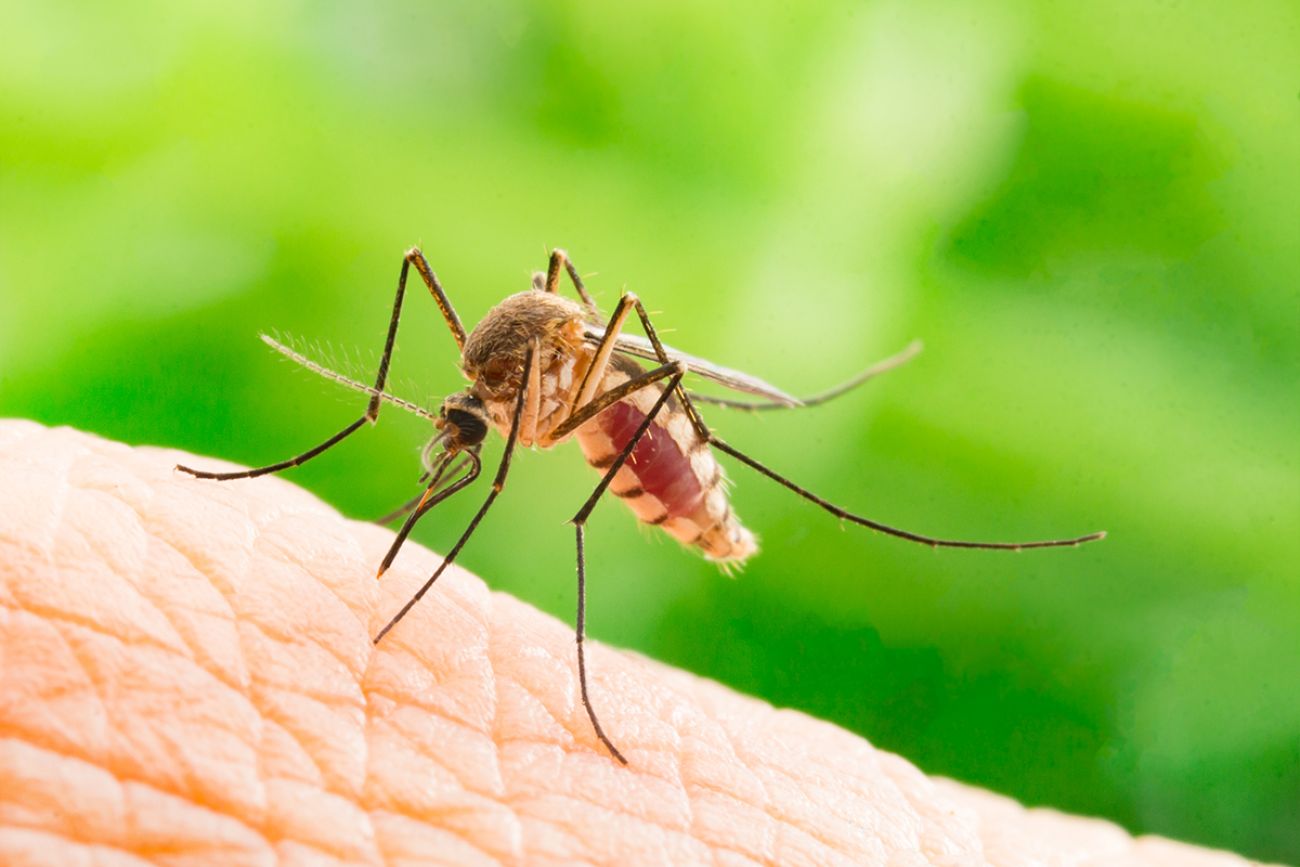Spring has already sprung for mosquitoes in Michigan

Mosquitoes in Michigan are beginning to appear a month ahead of schedule. (Shutterstock)
by Janelle D James, Bridge Michigan
Although spring isn’t official for another two weeks, record-high temperatures in February have prompted mosquitoes to emerge early. The warm weather has made for great days to go outside and play or sit around a fire, but it also makes people more susceptible to bites from the nuisance insects.
Mosquitoes in Michigan are most active in the summer months, from June through late September but can be active from March to November. They can survive as long as temperatures are between 50 and 80 degrees Fahrenheit, said David Lowenstein, a consumer horticulture extension educator at Michigan State University.
The insects have started to emerge, which is about a month earlier than they typically would in Michigan, and Edward Walker, entomology professor at MSU, said it’s because of climate change.
“It just happens to be that we've had these incredibly unseasonably warm temperatures, which has allowed those mosquitoes to come out early,” he said. “It's been plenty warm enough for them to fly and so they'll start to bite.”
El Niño has made weather conditions across the state very mild this winter. In late February, most of the state — from Saginaw to Alpena — reached record-high temperatures, while snowfall totals are at record lows.
Now that mosquitoes are starting to emerge earlier in the season, that means there will be more of them come summer.
“Climate change has really lengthened our mosquito season both in the spring and in the fall,” Walker said. There is “earlier mosquito activity and populations building up in the spring and later ones in the fall, even progressing into biting mosquitoes in October.”
Even if temperatures drop below 50 degrees before spring, mosquitoes will go back into hibernation until it warms up.
“They're adapted to our winter conditions … that’s something they’re quite used to,” Walker said.
Mosquitoes can also transmit diseases such as West Nile Virus, but those species of mosquitoes don’t begin transmitting the disease until later in the season, which is why cases of the virus are high in June and July, Lowenstein said.
West Nile Virus is a disease that can affect anyone but those 60 years or older are more vulnerable. Symptoms include headache, body aches, joint pains, vomiting, diarrhea or rash. Most people who contract the disease don’t show symptoms.
“If anyone was bitten by a mosquito that happened to be active or emerge in the last couple of days, the risk of that transmitting any kind of disease such as West Nile (virus) is very, very low right now,” said Lowenstein.
Staying away from bites
While mosquitoes are less likely to spread the virus now, avoiding mosquitoes will further decrease the chances of getting it, even if it is early in the year.
The Michigan Department of Health and Human Services recommends:
- Using insect repellent that contains the active ingredient DEET or other EPA-approved products on exposed skin or clothing.
- Wearing light-colored, long-sleeved shirts and long pants when outdoors.
- Maintaining window and door screening to help keep mosquitoes outside.
- Emptying water from mosquito breeding sites around the home, such as buckets, unused kiddie pools, old tires and other water-holding containers where mosquitoes can lay eggs.






You must be logged in to post a comment Login